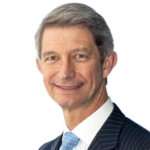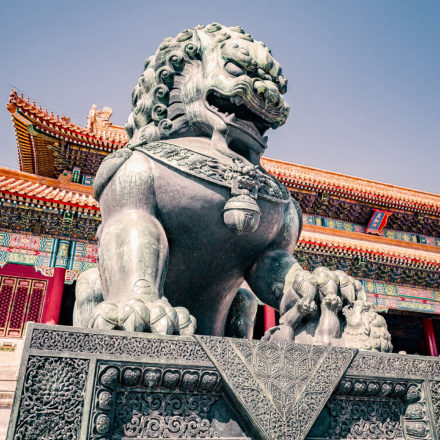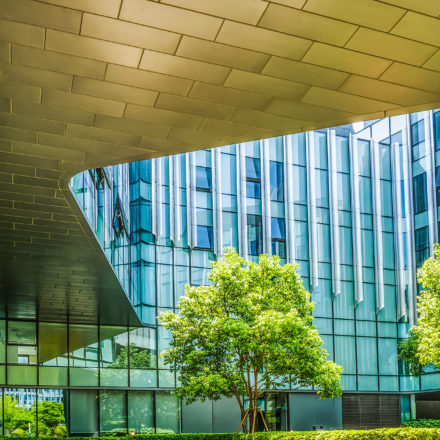The 2023 Boao Forum for Asia (BFA) marks the first time the event has been held in-person for three years. The theme is An Uncertain World: Solidarity and Cooperation for Development and Challenges.
King & Wood Mallesons International Director David Olsson is on the ground as one of the delegates. In between sessions, we took the opportunity to ask him a few questions. Here, we share his responses – an enlightening and promising take on the solutions-focussed approach that has permeated the BFA.
Climate and a ‘new globalisation’ – one that is focused on inclusive, green development, rich with trade and investment opportunities – features heavily. There were also important messages about China’s role in the global economy and the opportunities to work together towards sustainable economic recovery. National leaders across China, Malaysia, Singapore and Spain are among those who have shared strong messages on collaboration and climate, along with prominent businesspeople like Fortescue Metals’ Andrew Forrest.
David – over to you.
This is the first in-person BFA since 2019. Can you describe the ‘mood’?
There’s a really energetic and positive atmosphere. The conference rooms of the purpose-built BFA conference centre here in Hainan are buzzing with lines of delegates queuing to attend the many concurrent sessions. Breakout rooms host dozens of private meetings and cameras are filming interviews for broadcasts on Chinese and international networks.
People are relishing the chance to meet in person. In each of the sessions, speakers have commented at how good it is to be back and to meeting face to face. There’s also a refreshing focus on solutions. The theme is An Uncertain World: Solidarity and Cooperation for Development and Challenges, yet the ‘uncertain’ world is taken as a given. The focus is squarely on solidarity and cooperation, with speakers in all the sessions that I attended focussing on finding solutions and pathways ahead.
“We are all in the same boat and there is no empty talk. We share too much in common to go in alone. As our newspapers are filled with stories of war, virus and geo-political tensions, the sessions are a welcome reaffirmation of the importance of working together for a shared future.”
Who else is there?
A range of extremely impressive and diverse leading businesspeople, government representatives and from Chinese and international think-tanks and academia. There are too many (more than 2000!) to name them all, but to give you a taste…
- From Australia, the Assistant Minister for Trade, Senator Tim Ayres is here – the first time an Australian government minister has addressed the forum since 2016. Australian Ambassador Graham Fletcher and DFAT colleagues, and Austrade CEO Xavier Simonet were all active in sessions and closed door meetings. From business, long-time BFA supporter and a member of the BFA board, Andrew Forrest, was prominent, along with a number of Fortescue colleagues. Tim Ford, CEO of Treasury Wine Estate was here, and I was also representing the 500 or so members of the Australia China Business Council.
- From China, the highlight was newly elected Premier Li Qiang who gave a keynote address at the plenary session. The chairs and CEOs of some of the largest and most influential energy companies spoke at The Future of Clean Energy session, including Trina Solar CEO and Chair Gao Jifan, China Energy Investment Corporation CEO and Chair Liu Guoyue, China National Petroleum Corporation President Hou Qijun.
- Globally, attendees include many other national and global leaders, including former UN Secretary General Ban Ki-moon in his new role as Chairman of BFA, former Japanese Prime Minister Yasuo Fukuda, International Monetary Fund (IMF) managing director Kristalina Georgieva and so many others.
That’s quite a who’s-who! We hear Premier Li gave a speech to the 2000+ delegates on China’s place in Asia and its role globally – what did you take from it?
This was Premier Li Qiang’s first speech at a major forum since taking office earlier this month. The tone and content were well suited to many of the international delegates, as well as the local audience. He emphasised the need for China and the international community to re-engage with each other after a period of pandemic disconnect, to work together to support regional economic recovery (especially around shared global issues like climate and sustainable development), and to rebuild people to people and cultural exchanges.
In the context of China’s rising role in global governance, Li also touched on the three new concepts that are appearing more frequently in official speeches: ‘Community with a shared future for mankind’, the ‘Global Development Initiative’ and the ‘Global Security Initiative’.
“They are a response to a changing world: economic globalisation, global challenges that are beyond the control of any one country and China’s rising role in global governance. We can expect to hear more of these in the future.”
Li was also optimistic about China’s economic recovery, noting a strong rebound in domestic growth in the first quarter of 2023, which he was confident would create a powerful impetus for economic growth in Asia. A point that he, and many of the other regional leaders that spoke at the plenary session, made is that “Asia is both the anchor and propellor for global growth”.
What are the messages from other leaders, both within the region and beyond?
Again – it feels as though I’m not giving justice to the entirety of the event and its incredible roll call of delegates to single out a handful – but key messages that come to mind include:
- Ban Ki-moon spoke of the Asian regional architecture and said that emerging and developing Asia remains the best hope and chief driver for global growth.
- Singapore’s Prime Minister Lee Hsien Loong and Malaysia’s Prime Minister Anwar Ibrahim each spoke about the importance of greater cooperation and solidarity in the ASEAN region.
- Singapore’s Prime Minister also shared his vision for regional security and development based on Singapore’s participation in a ‘dense mesh of relationships’.
- Spain’s President Pedro Sánchez Pérez-Castejón spoke about a new model of globalisation that takes account of issues such as the environment.
- IMF MD Kristalina Georgieva spoke about deeper cooperation between China and the IMF.
- FFI’s Andrew Forrest spoke about the significant steps that China has taken to decarbonise its economy, but at the same time urged China to move even faster to achieve its net zero goals.
David, we know you have a particular passion for climate solutions – especially the opportunities to collaborate and innovate to reach net zero. Has the BFA ‘delivered’ on this front?
In short: yes! Thankfully and enrichingly, yes. My focus was on the sessions related to addressing the climate challenge. I’ve also enjoyed numerous conversations with other delegates on the topic, and there’s a satisfying level of agreement on the need to act – both fairly, and quickly.
The panel for a session on the Future of Clean Energy featured Australia’s Assistant Trade Minister Tim Ayres (who incidentally was the opening panellist), along with the Chairs and CEOs of some of China’s most influential and important new energy companies, as well as FFI CEO Mark Hutchinson. It was terrific that Australia’s voice was so clearly heard in one of the key sessions.
Minister Ayres used the panel discussion to highlight the Australian Government’s strong action on climate change. This puts Australia in the front row to capitalise on trade and investment opportunities from the global transition to net zero. As a very high-level summary, his message was: Australia’s policy settings are now in good shape; the task now is to unlock the green economy opportunities at home, and around the region.
“Noting the nation’s abundance of natural resources required to generate renewable energy, he spoke about the importance of creating a ‘new kind of partnership between government and the private sector’ to achieve the nation’s net zero targets and the importance of policy leadership.”
His remarks were confident and resonated well – with good audience feedback and questions.
What about the session on Global Green Energy and Green Hydrogen Supply Chains – did that lead to any revelations?
That session was on Wednesday – and it was the highlight of the day for me! It was refreshing to hear Chinese and Australian companies advocating for closer cooperation and bringing to the discussion clarity around the issues we face and possible pathways ahead.
Tian Wei, one of China’s most well-known TV anchors, led a fascinating discussion with a panel comprising:
- Andrew Forrest, one of Australia’s visionary actors in this space
- Jason Willoughby, the CEO of CWP Renewables, Australia’s largest integrated renewable energy company
- Gao Jifen, the Chairman and CEO of Trina Solar, a world leader in the manufacture and deployment of photovoltaic modules and smart energy solutions, and
- Zhou Fugui, Chairman of Sany Renewable Energy, a global leader in the wind turbine manufacture and deployment.
“Each of those leaders has a clear vision for bringing about a green, zero carbon future, one that supports economic activity, that will be quieter (yes, that’s right – no noisy diesel buses), that brings about a higher standard of living in developed and emerging economies.”
The discussion was wide-ranging, with a robust exchange of ideas at times, but the key points were consistent:
- addressing climate change is the defining issue of our time
- we need to move to net zero at scale, and with speed
- the challenge is a global one and we can’t do it alone
- the scale of the efforts needed is vast, but also brings with it immense possibilities.
It was important to hear these views, but the most exciting part was the commitment by all panellists to taking action. Each of the businesses they lead have the capacity to make a difference, to influence policies and to deliver outcomes that matter.
We know that the sessions are wide-ranging – can you share your key takeaways so far?
For me, there are a range of important messages, but the ones that stand out include:
- Asia will play a critical role in supporting post-pandemic global economic growth – with 60% of the world’s population, 40% of global GDP and 30% of global trade
- BFA Chairman Ban Ki-moon summarised a resounding consensus beautifully: we need to ‘think global, think long-term and think big’
- We have a valuable opportunity, right now, to move beyond domestic concerns and re-focus on global challenges – climate change, poverty, inequality, public health and sustainable development
- There are bright spots ahead – the green economy offers a vital source of growth, development and commercial opportunity
- China has the leadership, capital, technology, and industrial base to support the world’s energy transition supply chain.
Can we ask an Australia-centric question: what is the significance of Australia’s participation?
Australia has long participated in the BFA, but the 2023 session is noteworthy and promising.
Minister Ayres’ participation was the first for an Australian Government minister since 2016, and is another important step in the stabilisation of Australia’s relations with China. His emphasis on creating a new partnership and leading on policy was more than just reassuring – it instils me with hope that we can seize the significant opportunities ahead.
The Australian business delegation was also one of the most prominent and coordinated of all the nations at the Forum. Hat’s off to Andrew Forrest for his determination and vision in bringing Australian business leaders to Boao – since 2008. I’ve certainly enjoyed spending quality time with representatives from the Australian finance, wine, education, business services, mining and energy sectors. While we all have different business interests it was clear that we are all united in seeking to drive forward the positive political engagement by translating this into tangible and meaningful outcomes for Australia.
Now putting on a global lens – what does the BFA mean for recovery efforts ahead?
The collaborative global approach has been a welcome change from a domestic Australian lens. It brings an overriding sense of optimism and hope, to be actively involved in some lively conversations that highlight the lens through which other nations, companies and individuals view the world today.
Your final word?
I’ve enjoyed how ‘busy’ the BFA is. We still have one more day to go with, for me, the highlight session. I’ll be attending the China-Australia Senior Business Leaders Forum with other Australian delegates (we held a preparation session together, which was great for connecting ahead of the collaborative session). The sessions have been bookended with networking events, including the odd cocktail party, which hasn’t hurt.
“This week’s sessions are so far living up to expectations. Business leaders, government officials and others from around the region and internationally gather to look back and plan ahead, to think and debate… and act.”
Thank you, David! We’re thrilled you could share your insights all the way from Boao, on the striking coast of the Hainan province. We’re looking forward to your take on the final day.
- If you would like to read more about the opportunities from Australia and China collaborating on climate challenges, see the report co-authored by David on the topic (along with the Australia China Business Council and others from KWM) here.
- For background on the BFA, see David’s explainer here.








